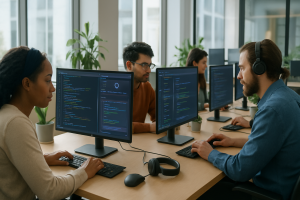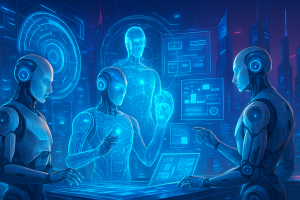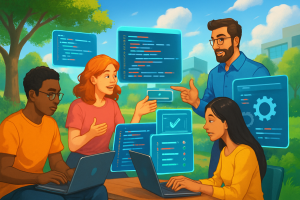In the rapidly evolving landscape of artificial intelligence (AI) and machine learning (ML), developers are constantly seeking ways to streamline their workflows and enhance collaboration. Two powerful tools, Docker and Kaskada, have emerged as game-changers in this domain, offering unprecedented levels of reproducibility and efficiency in AI/ML development environments.
The Rise of AI/ML in Software Development
As AI and ML become increasingly integral to modern applications, the need for robust development tools has never been more critical. Industry experts predict that by 2027, an overwhelming majority of new business software applications will incorporate ML models or services, leveraging the vast amounts of data available to enterprises.
Docker: Containerizing Development Environments
Docker has revolutionized the way developers set up and deploy development environments. Its core benefits are now playing a crucial role in accelerating the AI/ML development cycle:
- Reproducible Environments: Docker allows data scientists to package their code and dependencies into images that can run as containers on any machine.
- Simplified Setup: Complex installation processes are eliminated, ensuring that all team members work with identical development environments.
- Version Control: Docker helps manage code dependencies and resolve version conflicts efficiently.
Kaskada: Optimizing Feature Engineering
Kaskada complements Docker’s capabilities by focusing on the data aspect of AI/ML development:
- Feature Computation: Kaskada provides a way to compute features, especially those requiring temporal reasoning.
- Code Sharing: Feature definitions can be shared as code, promoting collaboration and reusability across projects.
- Lifecycle Support: Kaskada supports the entire ML lifecycle, from local training to maintaining real-time features in production.
Synergistic Benefits
The combination of Docker and Kaskada offers several advantages to AI/ML practitioners:
- Accelerated Iteration: Faster experimentation cycles lead to quicker insights and problem-solving.
- Enhanced Collaboration: Teams can easily build upon each other’s work, avoiding compatibility issues.
- Improved Reproducibility: Experiments and results can be consistently replicated across different environments.
- Streamlined Workflows: From development to production, the entire ML pipeline becomes more efficient and manageable.
Practical Implementation
A typical workflow using Docker and Kaskada might involve:
- Setting up a Docker container with pre-installed Jupyter and Kaskada.
- Customizing the development environment using a Dockerfile.
- Using Kaskada to create tables, load event data, and build features.
- Leveraging Kaskada’s query language for end-to-end transformation from raw events to training datasets.
- Training and evaluating ML models within the containerized environment.
Conclusion
The synergy between Docker and Kaskada is transforming the AI/ML development landscape. By providing reproducible environments and powerful feature engineering capabilities, these tools enable data scientists and ML engineers to tackle real-time ML problems with unprecedented speed and efficiency. As the field continues to evolve, the combination of Docker and Kaskada promises to remain at the forefront of AI/ML innovation, empowering developers to push the boundaries of what’s possible in artificial intelligence and machine learning.
Read more such articles from our Newsletter here.



